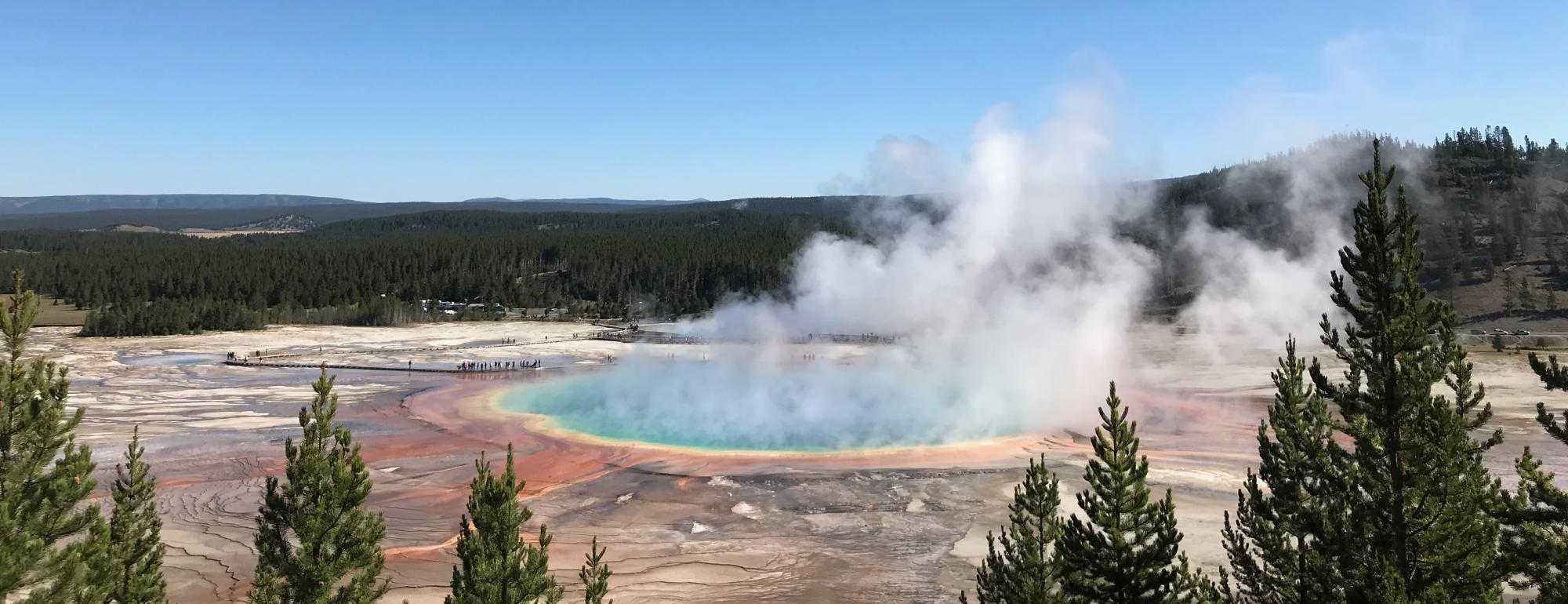News Archive 2021-2022
Schlumberger Foundation Faculty for the Future Fellowship | Goabaone Jaqueline Ramatlapeng
UC Davis Earth and Planetary Sciences | Graduate, Professional Programs Rank Among ‘Best Graduate Schools’
In the U.S. News & World Report’s 2023 edition of Best Graduate Schools, UC Davis Earth and Planetary Sciences ranked 19th in earth sciences and debuted in two new specialties, geochemistry and environmental sciences, with 25th and eighth placements, respectively. Each set of rankings is based on different types of data, including expert opinions relating to a program’s academic excellence and statistical indicators that assess students and faculty achievements. Additionally, the 2022 QS World University Rankings by Subject ranked EPS in the top 50 in the world for geophysics and geology and 20th nationally for geophysics.
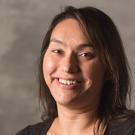
Sarah Stewart | A New Creation Story for the Earth and Moon
Winston Ko Public Lecture: A talk about the accidental discovery of a new type of astronomical object, called a synestia, that may save the idea of a giant impact and forever change the way you think about the birth of our planet.
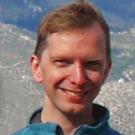
Max Rudolph | On icy moon Enceladus, expansion cracks let inner ocean boil out
From AGU: "In 2006, the Cassini spacecraft recorded geyser curtains shooting forth from “tiger stripe” fissures near the south pole of Saturn’s moon Enceladus — sometimes as much as 200 kilograms of water per second. A new study suggests how expanding ice during millennia-long cooling cycles could sometimes crack the moon’s icy shell and let its inner ocean out, providing a possible explanation for the geysers." Max Rudolph is the lead author of the new study, published in Geophysical Research Letters.
Isabel Montañez | National Academy of Sciences Induction Ceremony
National Academy of Sciences Induction Ceremony Livestream: Friday April 29, 4:00–5:30 pm EST– Members and international members elected in the past three years will be introduced to their colleagues in the Academy and sign the “Registry of Membership.” Elected to the NAS in 2021, Isabel Montañez's work has informed a better understanding of Earth’s ocean, land and atmospheric records of the past half billion years and suggests what the ancient carbon dioxide record may mean for future climate change.
Give Day | Earth and Planetary Sciences
Give Day opens officially on Friday, April 22nd! EPS has two Give Day challenges that are being sponsored by our alumni: Geology General Support and EPS Latham Student Support Fund. If you are in a position to do so, please consider giving something to help us unlock these challenge gifts! The challenge gifts are unlocked based on the number of gifts received, not the amount - so if we get 15 gifts to the Geology general support challenge and 10 to the EPS Student support fund, we unlock the amounts that our generous alumni have committed. You can make gifts any time between now and 5 pm on Saturday. Thanks for considering!
Investigating earthquake activity of the 2018 Kīlauea Volcano eruption | Becky Fildes
From EGU Blogs: "Both earthquakes and research project directions can be hard to predict. This week Becky Fildes, a graduate student at UC Davis, takes us on a journey of how she came to study earthquake behavior in Hawaii during an active volcanic eruption and how our understanding of caldera collapses can be further improved."
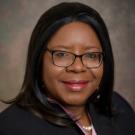
Estella Atekwana | Women in Leadership
From Comstock's Magazine: Estella Atekwana, dean of the UC Davis College of Letters and Science, grew up in Cameroon in Central Africa, where the measure of success was limited to those deemed to have prestigious careers. “We equated success with the medical doctor down the street, or an engineer or a lawyer,” she says. In high school, Atekwana took a geology class that expanded her horizons and ignited her interest in studying the Earth. But the teacher discouraged her from staying in the class because she was a young woman. She viewed it as a challenge and remained, finishing at the top of the class.
LPSC 2022 Haiku Contest | Supratim Dey
EPS graduate student Supratim Dey has placed 2nd in the Lunar and Planetary Science Conference Haiku contest. By longstanding tradition, many attendees of the Lunar and Planetary Science Conference (a weeklong meeting held every March near Houston) compose conference mini-abstracts in haiku form.
2022 UC Davis Grad Slam Semi-Finalist | Ben Faulkner
EPS graduate student Benjamin Faulkner (Ph.D. student) is a 2022 Grad Slam Semi-Finalist. Ben's research topic: "The Salad Days of Reptiles”. UC Grad Slam is an annual contest where master’s and Ph.D. students across the University of California – in disciplines ranging from hard sciences to humanities – compete to sum up their research for a general audience. UC Davis Semi-Final Round (In-Person Competition) will be held on Wednesday, April 6, 2022 from 1:00-3:00 p.m. in the Graduate Center at Walker Hall. Register Here
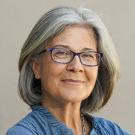
Isabel Montañez | U.S. megadrought worst in at least 1,200 years, researchers say
From NBCnews: "Isabel Montañez, a geologist and geochemist at the University of California, Davis, who was not involved with the research, said the study confirms the grim outlook that models have been projecting but adds a new component of isolating the impact of human-caused climate change."
Deep Mantle Krypton Reveals Earth’s Outer Solar System Ancestry | Sandrine Péron
From UC Davis Letters and Science: "Krypton from the Earth’s mantle, collected from geologic hot spots in Iceland and the Galapagos Islands, reveals a clearer picture of how our planet formed, according to new research from the University of California, Davis." Sandrine Péron, lead author of the study, is currently a Marie Skłodowska-Curie Actions Fellow at ETH Zürich in Switzerland. Péron conducted the research at UC Davis as a postdoctoral fellow working with Professor Sujoy Mukhopadhyay. The study was published Dec. 16 in the journal Nature.
Evidence for Shared Earthquakes Between San Andreas and San Jacinto Faults | Alba Rodríguez Padilla
From UC Davis News: "The San Andreas and San Jacinto faults have ruptured simultaneously at least three times in the past 2,000 years, most recently in 1812, according to a new study by geologists at the University of California, Davis, and San Diego State University. The work was published Dec. 7 in the journal Geology. Large earthquakes involving multiple faults increase the threat of strong ground shaking. However, each of these faults on their own can generate a large-magnitude (7.5 or above) earthquake, said Alba Rodríguez Padilla, a graduate student at UC Davis and first author on the paper."
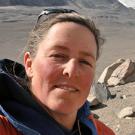
Dawn Sumner | Astrobiology in the Field, Episode 2: Greenland
From NASA Astrobiology: "This expedition is the second installment of the NASA Astrobiology video documentary series Astrobiology in the Field. This series aims to showcase the amazing analogue environments and the interesting field work being conducted all over the world by NASA scientists; work that directly informs NASA missions to discover extraterrestrial life in the Universe." Dawn Sumner is a member of a team of astrobiologists, led by Dr. Abigail Allwood from the NASA Jet Propulsion Laboratory, who travel into the wilderness of Greenland to investigate claims of biosignatures in 3.7 billion year old rocks.
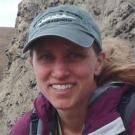
Kari Cooper | Putting Science Into Practice: Preparing for Volcanic Eruptions
From UC Davis Letters and Science: "Coordinating the emergency response to an erupting volcano is an all-hands-on-deck affair that leaves little time for extra work, such as answering boatloads of inquiries from researchers who want to collect rock samples. On the other hand, science done during eruptions provides essential data for understanding and forecasting future volcanic flare-ups. To help balance these interests, scientists like Kari Cooper, professor of earth and planetary sciences at UC Davis, are exploring how to prioritize public safety while maximizing the limited time and access for collecting data and samples."
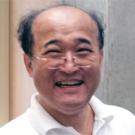
Qing-zhu Yin | Dwarf Planet Vesta Is a Window to the Early Solar System
Qing-Zhu Yin is a study co-author. From the Egghead blog: The dwarf planet Vesta is helping scientists better understand the earliest era in the formation of our solar system. Two recent papers involving UC Davis scientists use data from meteorites derived from Vesta to resolve the "missing mantle problem" and push back our knowledge of the solar system to just a couple of million years after it began to form. The papers were published in Nature Communications Sept. 14 and Nature Astronomy Sept. 30.
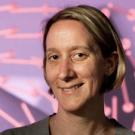
Magali Billen | Deepest earthquake ever detected struck 467 miles beneath Japan
Magali Billen comments on the deepest earthquake ever detected, described recently in the journal Geophysical Research Letters. From National Geographic: "One spring evening six years ago, hundreds of miles underground, our planet began to rumble from a series of peculiar earthquakes. Most of Earth's temblors strike within a few dozen miles of the surface, but these quakes stirred at depths where temperatures and pressures grow so intense that rocks tend to bend rather than break."
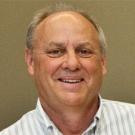
Robert Zierenberg | Interdisciplinary Investigation of the Pescadero Basin
Robert Zierenberg is part of the team of interdisciplinary researchers and engineers aboard the Schmidt Ocean Institute's R/V Falkor. From the Schmidt Ocean Institute: "The Auka Vent field is a series of hydrothermal vents located in Pescadero Basin, one of several small ocean basins in the tectonically active Gulf of California (GOC)...They plan to map the neighboring Carmen and Farallon Basins, characterize heat flow in the Pescadero Basin, and examine hydrothermal vent microbiology and ecology in the Auka and JaichMaa ’ja’ag fields in order to further our understanding of these recently discovered hydrothermal systems." ROV Dive videos | Surreal Deep Sea Discoveries Include Glitter Worms and Upside-Down Lakes

Dawn Sumner | Feminist Research Institute
From FRI: "The Feminist Research Institute is pleased to introduce Professor Dawn Sumner and Professor Colleen Clancy as interim co-directors of FRI. 'We are proud and excited that Dawn and Colleen have agreed to further support FRI by serving as interim co-directors during the 2021-2022 academic year,” said Associate Director Sarah McCullough. 'Their commitment to values-based research and teaching have inspired us and others, and we feel confident that they will contribute to our research, research development and training initiatives.'"

Isabel Montañez | The Climate Archive of Caves
From UC Davis Unfold Podcast: ‘Nature Tells Its Story, Part 2’. "California boasts hundreds of caves, many of them hidden in the Sierra Nevada foothills. These caves hold much more than beautiful icicle-like stalactites and stalagmites. Trapped inside the stalagmites are tiny droplets of fossilized precipitation from climates long ago. In “Nature Tells Its Story, Part 2” of Unfold, UC Davis researchers discuss how these water droplets provide a “climate archive” that may help us predict future shifts in rain, snow and drought." In this episode: Isabel Montañez, distinguished professor, UC Davis Department of Earth and Planetary Sciences and Barbara Wortham, doctoral student, UC Davis Department of Earth and Planetary Sciences.

Isabel Montañez | National Academy of Sciences, 2021 Member
Isabel Montañez has been elected to the National Academy of Sciences. Her work has informed a better understanding of Earth’s ocean, land and atmospheric records of the past half billion years and suggests what the ancient carbon dioxide record may mean for future climate change. The National Academy of Sciences was established under a congressional charter signed by President Abraham Lincoln in 1863. It recognizes achievement in science by election to membership, and—with the National Academy of Engineering and the National Academy of Medicine—provides science, engineering, and health policy advice to the federal government and other organizations.

Estella Atekwana | Reginald Fessenden Award
Letters and Science Dean Estella Atekwana has been awarded the Reginald Fessenden Award by The Society of Exploration Geophysicists. This honor is awarded to those who have made a specific technical contribution to exploration geophysics, such as an invention or a theoretical or conceptual advancement that merits special recognition. Estella is the pioneer in bio-geophysics, essentially having defined the field. This exciting new field addresses changes in acoustic, magnetic, and electrical properties due to microbial growth and biofilm formation in porous media.
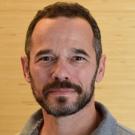
Nicholas Pinter | The Long U.S. History of Relocating Communities Because of Flooding
From Slate: As communities across the United States and around the world are increasingly threatened by climate-driven flooding and sea-level rise, academic researchers and disaster managers alike agree that managed retreat—the abandonment of occupied land and the removal or relocation of population and infrastructure—will eventually be unavoidable.
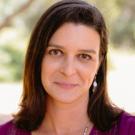
Tessa Hill | Hard Times for Hard Shells
From AAS: "Having a conversation about wildfires may be an unusual way to help educate people about climate change in our oceans. But for Northern California-based marine scientist and AAAS Fellow Tessa Hill, Ph.D., both topics are urgent and closely related. Deadly, fast-moving wildfires have touched nearly everyone in the region. And the fires’ link to climate change provides a non-threatening way for her to engage with her community about heat waves, both on land and in the oceans."

Magali Billen | Graduate Studies Announces the First Faculty Academy of Graduate Student Well-Being
Magali BIllen has been selected to participate in the Faculty Academy of Graduate Student Well-Being. The inaugural cohort of the academy was selected from a competitive pool of individuals and represents a variety of departments across campus. As part of the academy’s program, the selected participants will learn relevant scholarship on mental health and develop facilitation skills to lead conversations and seminars on well-being. These faculty members will go on to facilitate a graduate-level seminar within their departments to help graduate students enhance their well-being and professional success.
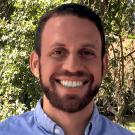
David Gold | NSF CAREER Award
David Gold has been granted a prestigious 5-year NSF "Early Career" award to continue his research on the interpretation of chemical biomarkers in the rock record: "An Evolutionary Framework for the Molecular Fossil Record". This grant supports David's continued use of genetics to identify what groups of living organisms have the ability to make various biomarkers that are used to trace the history of evolution, source rocks for petroleum, and pollution sources. David will also use the genetic data, calibrated to the rock record, to help pin when in the past each group gained the ability to make specific biomarkers. Early Career grants include a strong outreach component, and David will be developing courses to train early career geologists to use genetic tools for their own research. He will also be developing a mentoring program for promising Native American scholars, a group that has been historically harmed by geoscientists through land and resource theft.

Isabel Montañez | New Director of the John Muir Institute of the Environment
From the Office of Research: The University of California, Davis, Office of Research is pleased to announce the selection of Isabel Patricia Montañez as the new director of the John Muir Institute of the Environment (JMIE) effective September 20. Montañez, a UC Davis distinguished professor and a chancellor’s leadership professor in the Department of Earth and Planetary Sciences, is a renowned field geologist and geochemist specializing in past records of ancient climate change. Her work involves reconstructing global and regional climates, in particular those during warming and major climate and ecosystem perturbations to show how the baseline climate behavior of these interconnected components contribute to future climate change.

